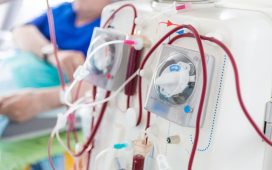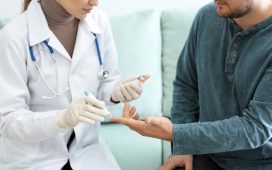Risk for testing positive reduced with use of probiotics, omega-3 fatty acids, multivitamins, and vitamin D supplements for women
TUESDAY, April 20, 2021 (HealthDay News) — The use of probiotics, omega-3 fatty acids, multivitamins, and vitamin D supplements is associated with a reduction in the risk for testing positive for severe acute respiratory syndrome coronavirus 2 (SARS-CoV-2), at least among women, according to a study published online April 19 in The BMJ Nutrition Prevention & Health.
Panayiotis Louca, from King’s College London, and colleagues examined the risk for testing positive for SARS-CoV-2 infection among COVID-19 Symptom Study app users who regularly took dietary supplements. Data were included from subscribers of an app launched to enable self-reported information related to SARS-CoV-2 infection for use in the United Kingdom, United States, and Sweden.
The researchers found that among 372,720 U.K. participants (175,652 supplement users and 197,068 nonusers), the risk for SARS-CoV-2 infection was reduced for those taking probiotics, omega-3 fatty acids, multivitamins, or vitamin D by 14, 12, 13, and 9 percent, respectively, after adjustment for potential confounders. There was no effect observed for those taking vitamin C, zinc, or garlic supplements. The protective effects seen in individuals taking probiotics, omega-3 fatty acids, multivitamins, and vitamin D were seen in women across age and body mass index groups, but not in men. In the U.S. and Swedish cohorts, the same overall pattern of associations was observed.
“Given the interest in supplements during the pandemic, large randomized controlled trials of selected supplements testing their protective effects, and also possible adverse effects, on disease severity are required before any evidence-based recommendations can be made,” the authors write.
Several authors disclosed financial ties to the pharmaceutical industry, including Zoe Global Limited, which funded the study.
Copyright © 2021 HealthDay. All rights reserved.








